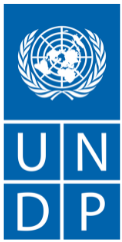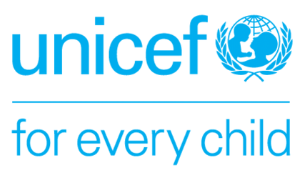The COVID-19 pandemic and the subsequent economiccrisis have hit most of the countries in the world hard. To counter the effectsof the crisis on health and livelihoods, governments are implementingexceptional policies, which require unprecedented volumes of financial resources.The cost of these socio-economic measures, combined with the sharp drop in governmentrevenue, capital outflows and trade, puts a tremendous strain on public financeand is undermining debt sustainability in many countries.
The internationalcommunity rallies to support the urgent needs of countries during COVID-19
The United Nations (UN) and its agencies, theinternational financing institutions (IFI) along with other development partnershave implemented rapid intervention initiatives to address urgent needs ofcountries. In particular, in line with its wide range of policy areas, the UN aims to facilitate a coordinatedeffort, through its UNFramework for the Immediate Socio-Economic Response to COVID-19, to addressthe challenges in three different areas: global health, coordinated by the WHO,emergency humanitarian relief with the OCHA and social and economic responseand recovery coordinated by the UNDP.
The International Monetary Fund (IMF) is providing rapid financialassistance and debt service relief to its member countries at an unprecedentedscale. Over 100 countries have requested assistance, and over 70 have beenalready approved under the Rapid Credit Facility, which can meet financingdemands for emergency funding of up to USD 100 billion globally. About 30countries have also asked to access the Catastrophe Containment and ReliefTrust, which cancels debt repayments on IMF lending for the poorest countriesfor a period of six months. Other financing instruments have been put in place,bringing the estimated total lending volume available for the COVID-19emergency to about USD 1 trillion.
In April 2020, the World Bank deployed fast-track lending for countries to rebuild theireconomic system after the health and economic crisis following the COVID-19outbreak.
The G20 haveestablished the Debt Service Suspension Initiative (DSSI), which suspends debtservice payments on bilateral debt for 73 low-income and least developedcountries until the end of 2020. As of July, it has temporarily freed aroundUSD 5 billion for the COVID-19 response.
At the bilateral level, the European Union (EU) launched its ‘Team Europe” initiative in June2020. The initiative focuses on supportingemergency responses to the immediate health crisis; strengthening health, waterand sanitation systems and research capacities to deal with the pandemic; andaddresses the immediate social and economic consequences of the pandemic.So far, the initiative has mobilised over EUR 36 billion to support countriesaround the world.
INFFs are animportant tool for shaping the response to COVID-19
While emergency intervention is paramount for allgovernments in the very short-term, it is still essential to align theseemergency responses with medium- to long-term priorities. Large-scale fiscalstimulus packages have more than a macroeconomic impact – they can seteconomies on new growth and development pathways.
INFFs can be an important tool in shaping theimmediate response and in maintaining progress on the long-term goals of the2030 Agenda and the Paris Agreement, which address precisely the failures thatare being exposed by the COVID-19 pandemic. Indeed, COVID-19 has highlighted howdelays in SDG implementation (and lack of integrated approaches to sustainabledevelopment and financing) can make countries and certain population groups vulnerableto crisis. This pandemic could, therefore, be an opportunity to get back on amore sustainable trajectory guided by the 2030 Agenda, with financial andnon-financial resources aligned through INFF initiatives.
In the emergency phase, certainelements of INFFs could help policymakers in their response. As part of INFFscoping and inception phase work, the international community could helpgovernments to:
- Conduct a rapid assessment of how financing flowsare being impacted by the pandemic, contributing to socio-economic impactassessments and response plans;
- Scan financing options, particularly internationalsupport, to allow government and private sector access to liquidity andfinancing;
- Use INFF coordination mechanisms, if alreadyestablished, to bring together public and private financing actors around theCOVID-19 response;
- Strengthen transparency and accountability forfinancing the response and bolstering public confidence; and
- Build synergies between different internationalCOVID-19 response efforts at the country level, including the implementation ofthe UN Framework forthe Immediate Socio-Economic Response to COVID-19 and the “Team Europe” supportpackage.
INFFs can play a key role in enhancing medium-term SDGplanning as countries revisit their objectives and strategies in light of a newbaseline. In the spirit of ‘building back better’, INFFs can take into accountthe impact of the pandemic, by: (i) assessing and mapping the consequences ofexternal risks; (ii) reconciling financing needs and costs while weighting thesustainability of the country’s debt; (iii) defining financing strategies andpolicies that will increase resilience and mitigate risks; (iv) improving monitoringand oversight over financing flows to better evaluate their effectiveness and(re)orient resources where needed; (v) strengthening coordination withingovernment and across public and private sectors; and (vi) facilitatingpartnerships among public and private players to mobilise all financial resourcesfor the SDGs.
UNDP, UN-DESA and the EU, along with other keyinstitutions, such as the IMF, have intensified their actions and cooperationto advance implementation of INFFs. These efforts have resulted in supportbeing provided to 16 pioneer countries in designing INFFs, the approval offunding for 62 governments and partner institutions by the SDG Joint Fund and thefinalisation of the INFF methodology and amendments in the light of theemergencies and financing constraints caused by the COVID-19 pandemic.

















